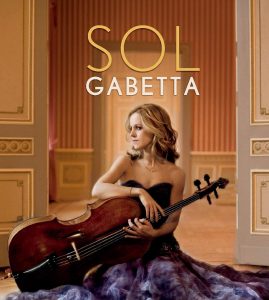SCHUMANN TO WIN YOU OVER
Although his life was difficult, to say the least, ending prematurely in madness, Robert Schumann nonetheless composed music that elevates us through its pure spirit and unique personal character. Last week, Gustavo Dudamel began a three-week exploration of this (I think) underappreciated composer. Of course, Schumann isn’t always necessarily easy, pleasant or approachable, but he was a musical genius, and his works betray the difficult, complex, mostly unhappy man of fragile health he was.
Dudamel’s fresh take on the First Symphony was a revelation: He aptly nailed one of Schumann’s most noteworthy characteristics — his use of lovely, open and really expressive harmonies which really are exquisite. Sometimes, his orchestrations are perceived as thick; Dudamel understood that Schumann opted for something of his own, ignoring the role of the individual instruments (mostly the winds and brass) as independent or individual factors, and that they don’t always have to represent nature, even in the Spring Symphony. Dudamel allowed the winds individual expression while making them a whole unit.
Coming up this Memorial Day weekend for four performances, the program which will make anyone fall in love (or fall in love all over again) with Schumann continues with his Symphony No. 3 (Thursday and Friday) and Symphony No. 4 (Saturday and Sunday). The exciting Genoveva Overture and his Cello Concerto are on each program.
Schumann wasn’t just a great piano composer. His great concerto for cello was composed late in his shortened life. Because he never liked receiving applause between movements, he deliberately created connections between the three movements, transitions that are, in fact, appreciated now as striking features of the work. Schumann had once declared that because he couldn’t write a concerto for virtuosi, he must aim at something else. Though he does exploit the cello fully, the soloist’s part generally avoids virtuosity for its own sake.
 The cello is primarily treated by Schumann as an extension of the human voice, so it’s perfect that Argentine cellist Sol Gabetta will be the soloist: She said in an interview with The Guardian that she chose the cello because it “very closely recalls the human voice, so it felt instantly familiar to me: it seems to represent soprano, alto, tenor and bass voices all in one, a unifying quality which is very rare and special.” I caught Gabetta at the Piatigorsky Cello Festival, and she blew me away — the mesmerizing Argentine of French and Russian descent, now settled in Switzerland, took Chopin’s Grand Duo Concertant and gave it an exquisite rendering full of love and turmoil.
The cello is primarily treated by Schumann as an extension of the human voice, so it’s perfect that Argentine cellist Sol Gabetta will be the soloist: She said in an interview with The Guardian that she chose the cello because it “very closely recalls the human voice, so it felt instantly familiar to me: it seems to represent soprano, alto, tenor and bass voices all in one, a unifying quality which is very rare and special.” I caught Gabetta at the Piatigorsky Cello Festival, and she blew me away — the mesmerizing Argentine of French and Russian descent, now settled in Switzerland, took Chopin’s Grand Duo Concertant and gave it an exquisite rendering full of love and turmoil.
Schumann’s Third Symphony, actually the last he composed (completed in the same year as the Cello Concerto), stands out in several ways: it contains five instead of the usual four movements, and that “extra” movement, the fourth, has been described as containing the most extraordinary example of German counterpoint since Bach. In it, Schumann depicts a solemn ceremony inside the breathtaking cathedral of Cologne, which moved him deeply. Filled with stirring drama, rhythmic energy, and characterful melodies, the four movements of Schumann’s Fourth Symphony — as with the formal innovation of the cello concerto — are played continuously.
photo of Sol Gabetta by Uwe Arens
Los Angeles Philharmonic; Gustavo Dudamel, conducter; Sol Gabetta, cellist
Walt Disney Concert Hall
SCHUMANN: Genoveva Overture; Cello Concerto
Thursday, May 24, 2018 at 8pm (+ Symphony No. 3)
Friday, May 25, 2018 at 11am (+ Symphony No. 3)
Saturday, May 26, 2018 at 2pm (+ Symphony No. 4)
Sunday, May 27, 2018 at 2pm (+ Symphony No. 4)
for tickets, call 323.850.2000 or visit LA Phil

